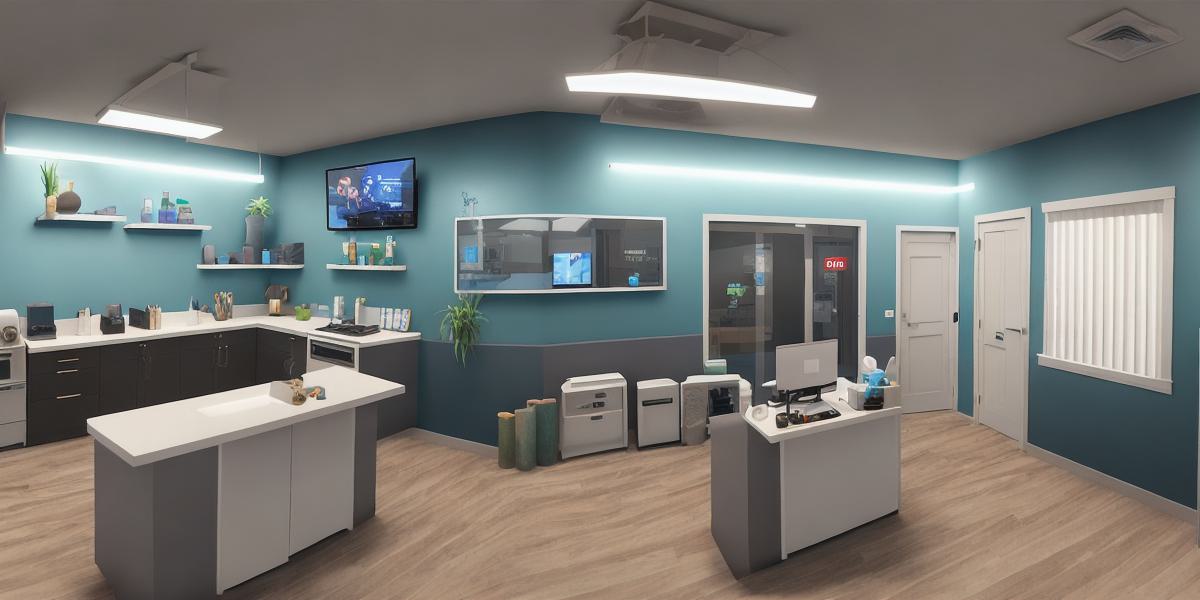Are you a unity developer looking for ways to overcome common challenges and improve your development experience? Look no further! In this article, we will explore six solutions to some of the most common problems that unity developers face. From optimizing performance to managing complex code, these solutions will help you streamline your workflow and take your Unity projects to the next level.
- Optimize Performance: The Ultimate Guide for Unity Developers
Performance is a crucial aspect of any game or application, and in Unity, it’s no exception. Unity developers often face challenges related to performance, such as frame drops, lag, and stuttering. To optimize performance in your Unity projects, consider the following tips:
![What are 6 solutions to [specific problem]?](https://yeezy2.org/blog/wp-content/uploads/2024/05/31727029.jpg)
- Use LOD (Level of Detail) systems to reduce the number of polygons and textures that are rendered, especially for distant objects.
![What are 6 solutions to [specific problem]?](https://yeezy2.org/blog/wp-content/uploads/2024/05/29158701.jpg)
- Reduce the number of draw calls by using techniques like batching and instancing.
- Use texture compression to reduce the size of your textures.
- Optimize your code for performance by minimizing unnecessary calculations and operations.
- Use profiling tools like Unity’s built-in profiler or third-party tools like Profiler GUI to identify performance bottlenecks.
By following these tips, you can improve the performance of your Unity projects and provide a better gaming experience for your users.
- Managing Complex Code: The Key to Successful Unity Development
As Unity projects become more complex, managing code becomes increasingly important. Unity developers often struggle with organizing their code, keeping it modular, and making changes without breaking other parts of the project. To manage your complex code effectively, consider the following tips:
- Use a code editor like Visual Studio Code or Sublime Text that supports Unity syntax highlighting and auto-completion.
- Create a clear and consistent naming convention for your assets, scripts, and folders to make it easier to navigate your project.
- Break down your code into smaller, modular components that can be easily reused and maintained.
- Use version control systems like Git to track changes and collaborate with other developers.
- Document your code thoroughly using comments and documentation tools like Doxygen or Javadoc.
By following these tips, you can manage your complex code effectively and ensure that your Unity projects are maintainable and scalable.
- Debugging and Troubleshooting: The Art of Identifying and Resolving Issues in Unity
Debugging and troubleshooting are essential skills for any Unity developer. Unity projects often contain bugs, errors, and other issues that can cause unexpected behavior or crashes. To debug and troubleshoot effectively, consider the following tips:
- Use Unity’s built-in console and debugger to identify and diagnose issues.
- Write clear and concise code that is easy to read and understand.
- Use logging and error handling techniques to catch and report errors gracefully.
- Test your code thoroughly using a variety of scenarios and edge cases.
- Document your code thoroughly using comments and documentation tools like Doxygen or Javadoc.
By following these tips, you can effectively debug and troubleshoot issues in your Unity projects and deliver high-quality software.
- Performance Testing: How to Ensure Your Unity Games and Applications Run Smoothly
Performance testing is crucial for ensuring that your Unity games and applications run smoothly on different devices and platforms. Unity developers often struggle with optimizing performance, especially when targeting low-end or older hardware. To ensure optimal performance, consider the following tips:
- Use profiling tools like Unity’s built-in profiler or third-party tools like Profiler GUI to identify performance bottlenecks.
- Optimize your code for performance by minimizing unnecessary calculations and operations.
- Use LOD (Level of Detail) systems to reduce the number of polygons and textures that are rendered, especially for distant objects.
- Reduce the number of draw calls by using techniques like batching and instancing.
- Test your game or application on a variety of devices and platforms to ensure compatibility and optimal performance.
By following these tips, you can ensure that your Unity games and applications run smoothly on all devices and deliver an exceptional gaming experience.
![What are 6 solutions to [specific problem]?](https://yeezy2.org/blog/wp-content/uploads/2024/05/19015330.jpg)
- Collaboration and Teamwork: The Key to Successful Unity Projects
Collaboration and teamwork are essential for successful Unity projects.
![What are 6 solutions to [specific problem]?](https://yeezy2.org/blog/wp-content/uploads/2024/05/99271356.jpg)


